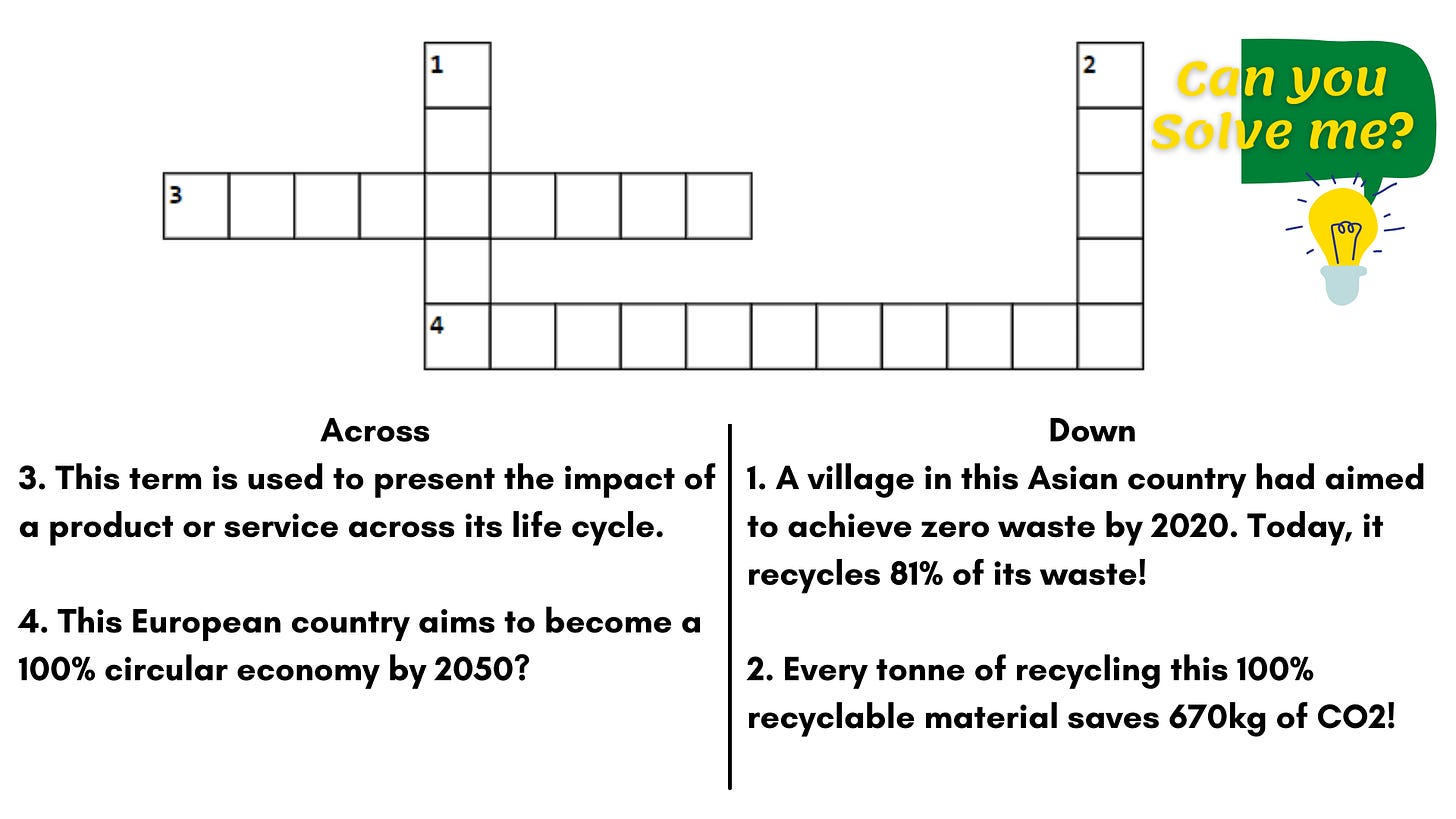Do my individual actions matter to climate change?
How (in)significant am I?
Short answer- they won’t move the needle.
The global emissions are around 50 billion tonnes.
An individual’s average emissions are 4 tonnes.
So an individual’s impact on the climate change is 0.00000000008 times the total impact.
Unfortunately, you going vegan, taking public transport, having one less child would not have an impact.
But if we think of our actions outside the scope of just lowering the overall carbon emissions, it can be impactful.
If your communication can lead to others joining you in this movement, the collective action can cause a systemic change.
And that can move the needle.
That’s what the conscious creators of Healthy Earth, Petya and Ivelina have been doing.
They are spreading the message of sustainability through their workbook Healthy Earth.
It contains educational texts, playful rhymes, some inspiring ideas, and practical tips which helps families and kids from different age groups to embrace eco-friendly habits.
Check it out here.
For this week, I’ve focused on 3 startups that are working on building a circular economy- a model where sharing, leasing, reusing, repairing, refurbishing and recycling is promoted.
It’s not practical…We can’t afford to phase out plastic bottles from our lives. Sometimes we forget to carry our own bottle of water. Then there are times when we don’t have an option- our preferred beverage might only come in a plastic bottle. We might dispose them appropriately after using but unfortunately, less than 10% of them would ever get recycled. The rest end up in a landfill or reach our oceans. A million plastic bottles are sold every minute around the world. Just imagine the trash that they create.
Recycle your own plastic…French startup Green Big is encouraging users to recycle plastic through its solution called b:bot- a compact plastic bottle recycling machine. The machine transforms plastic (PET) bottles into flakes- a raw material that cab be easily used by the recycling industry.
Green Big sells or rents b:bot to the supermarkets, who pay a monthly subscription fee for maintenance and the web platform.
The consumer slides the bottle into the b:bot, which recognizes the container from its bar code.
The machine sorts them into coloured and colourless bottles(they are sold at different rates) and then crushes them into 10-millimetre chips.

Incentivizing at every step…These chips are then transported to the plastic processing companies for recycling. Recycling the chips is easier for these companies than the bottles. This increases the %age of bottles recycled. A percentage of the revenue is shared with the distributor, while the consumer earns a voucher of one or two cents, to be spent in the supermarket.
Tile cutters, power tools, ladders…How many times do you use these items at your home? You would probably need it once per year and for the rest of the time, they are stacked somewhere, taking up space. Don’t you sometimes wish that you could just use them and return them? There have been some traditional rental companies but they typically require the borrower to put a large cash deposit in case the item is broken, lost or stolen.
Airbnb for stuff…UK-based Fat Llama is aiming to do for rentals what eBay did for buying and selling used items. For environmental and financial reasons, they want people to rent stuff that they use occasionally. Borrowing items helps to reduce unnecessary mass manufacturing as well as carbon-intensive distribution systems. It creates a source of revenue for the renter and helps the borrower save money.
Renters list the products on Fat Llama’s platform- things ranging from cameras and drones to camper vans, hot tubs and portaloos.
Borrowers interested in renting the equipment have to set up a meeting with the lender to pick it up.
Fat Llama utilizes risk-profiling technology and identity checks to reduce risk. It also insures each item rented for an amount up to $30,000 (big differentiator).

New avenues…The risk profiling technology and insurance allow it to do away with the traditional security deposit method. It makes it easier for people to rent out expensive DJ and photography equipment and generate a risk-free income. The company has recently launched a new enterprise platform that allows major retailers to offer a rental option to their customers. They have started experimenting that with the furniture segment.
It’s all related…India produces around 100,000 metric tonnes of solid waste every day. With insufficient waste segregation practices, most of this waste ends up in landfills, putting huge pressure on them. The rising piles of landfills are contaminating natural resources like soil and groundwater. A deep waste management issue is in the making here.
Truly circular…Shailaja Rangarajan started Rimagined in 2016 with an aim to reduce waste and use it to produce usable products such as furniture, jewellery, clothes and home décor. The production unit comprises of a group of women artisans from a low-income background- creating sustainable livelihoods through upcycling. From tetra paks and textile waste to motherboards and vinyl records, they upcycle a vast variety of products.
The process starts with sifting and sorting through different types of waste, followed by washing, cleaning and drying.
Based on the available material, they then think of creative ways to design it.
They are then manufactured by women artisans and listed on the website for sale.

Still affordable…The team has worked hard to price the products competitively so that users can consider them as a viable alternative. Each product is also given an environmental score which takes into account the ingredients’ recyclability, the time they would take to decompose and the waste that is prevented from ending up in the landfill.
🔍Ready for this week’s crossword challenge?
You can solve it here
🔖 Quick reads
Continue driving your old car or buy a new one- which is better for the planet?
Can we produce food out of our vehicle emissions?
Want to make a difference through your phone?
If you liked this edition, please do share it. That would mean a lot😊
📢 Shoutout to Paridhi who helped me write this edition.
Hit that 💚 if you liked today’s edition.
Are you following us on Instagram?
Thanks and see you next week😄










